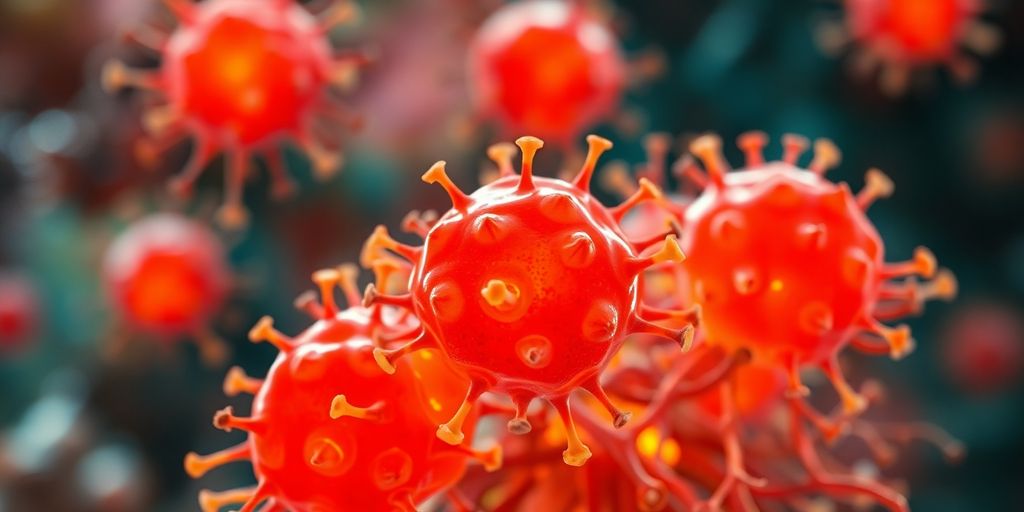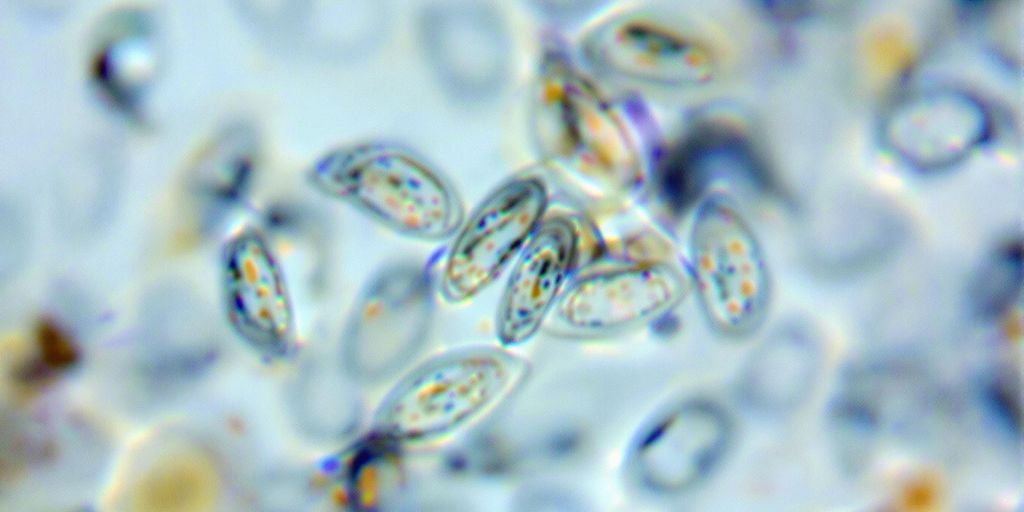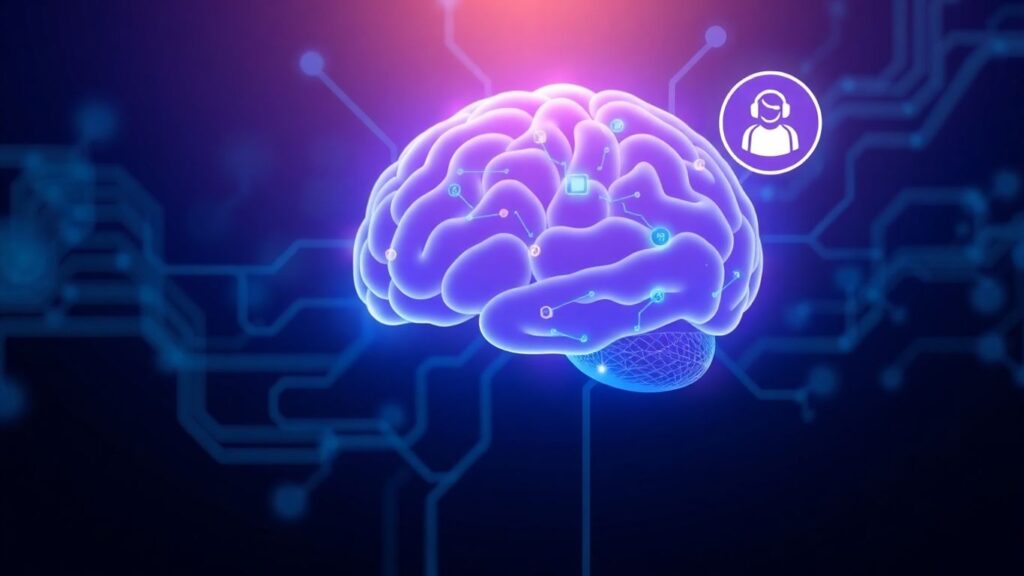Understanding Autophagy: The Key to Cellular Health and Longevity

Ever wondered how our cells keep themselves clean and functioning? That’s where autophagy steps in. It’s like the body’s own recycling system, breaking down old parts and making way for new ones. This process isn’t just about tidying up; it’s crucial for maintaining our cells’ health and can even influence how we age. As we dive into the world of autophagy, we’ll explore its role in cellular health, its connection to aging, and how it might just be the key to living longer, healthier lives.
Key Takeaways
- Autophagy is the body’s way of cleaning out damaged cells, in order to regenerate newer, healthier cells.
- This process plays a significant role in maintaining cellular health and energy levels.
- Autophagy is linked to aging and longevity, with potential to delay age-related diseases.
- Lifestyle choices like diet and exercise can influence autophagy.
- Research is ongoing to harness autophagy for therapeutic purposes, especially in age-related diseases.
The Basics of Autophagy

Definition and Overview
Autophagy is like the cell’s own cleanup crew. It’s a process where cells break down and recycle their own parts. This not only helps in removing damaged components but also provides energy and building blocks for new cell parts. It’s essential for keeping cells healthy and functioning properly. Think of it like a self-eating process where the cell digests its own contents to survive, especially during times of stress or starvation.
Historical Background
The concept of autophagy has been around for quite a while. It was first observed in the 1960s when researchers noticed that cells could digest their own components. Over the years, scientists have uncovered more about how this process works, leading to a deeper understanding of its role in health and disease. It’s fascinating to see how something discovered decades ago is still a hot topic in science today.
Key Components Involved
Autophagy involves several key players that work together in a well-coordinated manner. Here’s a simple breakdown:
- Initiation: This is the starting point where the cell decides to begin the autophagy process.
- Formation of Autophagosomes: These are like little bubbles that form around the cell’s unwanted parts.
- Lysosomal Degradation: Finally, these bubbles merge with lysosomes, the cell’s waste disposal units, to break down the contents.
This process ensures that cells maintain their balance by removing old or damaged parts and recycling them for future use. It’s a bit like a cellular recycling program that keeps everything running smoothly.
Mechanisms of Autophagy
Initiation and Regulation
Autophagy kicks off with the initiation phase, where the cell decides to start the process. This decision is influenced by various factors like nutrient availability and cellular stress. The Atg1/ULK1 complex, regulated by mTOR and AMPK, is key here. It begins the formation of a complex that controls the nucleation of the phagophore membrane, primarily at the endoplasmic reticulum. This step is crucial because it sets the stage for the entire autophagic process.
Autophagosome Formation
Once initiation is underway, the next step is forming the autophagosome, a double-membrane structure that will sequester the cellular material to be degraded. This involves a series of complex reactions, including the conjugation of ATG proteins like ATG12 to ATG5, which is essential for the elongation and closure of the autophagosome. These proteins work together to ensure that the autophagosome is correctly formed and ready for the next phase.
Lysosomal Degradation
The final step involves the fusion of the autophagosome with a lysosome, creating an autolysosome. In this structure, the internal components are broken down by lysosomal enzymes. This degradation is vital for recycling cellular materials and maintaining cellular health. The process is highly coordinated, and any disruption can lead to the accumulation of cellular debris, which is often linked to various diseases.
Understanding the mechanisms of autophagy is like piecing together a complex puzzle. Each part of the process, from initiation to degradation, plays a role in maintaining cellular health and homeostasis. The intricacy of this process underscores its importance in cellular function and longevity.
Autophagy is a key cellular process that not only helps in recycling cellular components but also plays a significant role in responding to stress and maintaining cellular balance.
Autophagy and Cellular Health
Role in Cellular Maintenance
Autophagy is like the cell’s own tidy-up crew, always on the go. It works by breaking down and recycling parts of the cell that are worn out or just not needed anymore. This process is super important for keeping cells in top shape. Imagine your room filled with clutter; autophagy is like cleaning up, making sure everything is in its place and working properly. Without autophagy, cells would be overwhelmed with junk, unable to function efficiently.
Impact on Aging and Longevity
As we age, our cells start to show signs of wear and tear. Autophagy helps slow down this process by removing damaged components before they cause trouble. It’s like having a handyman who fixes things before they break completely. Research suggests that by enhancing autophagy, we might actually improve our lifespan and healthspan. The process is linked to various longevity pathways, and when it’s working well, it can help fend off age-related issues.
Connection to Disease Prevention
Autophagy doesn’t just keep cells clean; it also plays a role in protecting us from diseases. For instance, it can help prevent the buildup of proteins that are linked to neurodegenerative diseases. It’s like having a security system that spots and removes potential threats before they can cause harm. By maintaining cellular health, autophagy supports the body’s defense against conditions like cancer and metabolic disorders. This makes it a key player in our overall health strategy.
Autophagy in Disease and Disorders

Cancer and Autophagy
Autophagy plays a dual role in cancer, acting as both a tumor suppressor and a promoter, depending on the context and stage of the disease. In the early stages of cancer, autophagy can prevent tumor development by maintaining cellular health and removing damaged organelles and proteins. However, in established tumors, cancer cells can exploit autophagy to survive in nutrient-poor environments and resist chemotherapy. Researchers are exploring ways to manipulate autophagy pathways to enhance cancer treatments, making this a promising area of study.
Neurodegenerative Diseases
In the realm of neurodegenerative diseases, cellular autophagy is crucial for maintaining brain health. Disorders such as Alzheimer’s, Parkinson’s, and Huntington’s disease have been linked to impaired autophagy processes. The accumulation of misfolded proteins and damaged cellular components due to defective autophagy contributes significantly to neurodegeneration. Enhancing autophagic activity is being investigated as a potential therapeutic strategy to clear toxic proteins and protect neurons from damage.
Metabolic Disorders
Autophagy is also deeply intertwined with metabolic disorders, including obesity, diabetes, and fatty liver disease. It regulates lipid metabolism and helps maintain energy homeostasis by breaking down cellular debris and excess nutrients. Dysfunctional autophagy can lead to the accumulation of lipids and insulin resistance, exacerbating metabolic conditions. By understanding how autophagy influences metabolic pathways, scientists aim to develop interventions that could mitigate these disorders and improve metabolic health.
Autophagy is a versatile process that not only helps cells adapt to stress but also plays significant roles in various diseases. By continuing to unravel its complexities, researchers hope to unlock new therapeutic avenues for some of the most challenging health conditions.
Nutritional and Lifestyle Influences on Autophagy
Dietary Interventions
Diet plays a huge role in regulating autophagy, the body’s way of cleaning out damaged cells to regenerate newer, healthier ones. Certain dietary patterns can trigger autophagy, helping maintain cellular health. For instance, intermittent fasting, like during Ramadan, has been shown to boost autophagy-related gene expression in overweight individuals. When you limit food intake, the body shifts into a repair mode, recycling old cell parts. This process is not just about cutting calories but timing your meals to give your body a break from digestion.
- Intermittent Fasting (IF): Abstaining from food for set periods can increase autophagy. A common method is the 16/8 approach, where you fast for 16 hours and eat during an 8-hour window.
- Caloric Restriction: Consuming fewer calories without malnutrition can extend lifespan and enhance autophagy. This doesn’t mean starving but eating nutrient-dense, lower-calorie foods.
- Ketogenic Diet: High in fats and low in carbohydrates, this diet mimics fasting states, thus supporting autophagic processes.
Exercise and Physical Activity
Physical activity is another powerful stimulator of autophagy. Regular exercise not only keeps you fit but also promotes cellular cleanup. When you work out, your body undergoes mild stress, which activates autophagy to repair muscle fibers and remove damaged proteins.
- Aerobic Exercises: Activities like running or cycling can increase autophagy, especially in the heart and skeletal muscles.
- Resistance Training: Lifting weights or bodyweight exercises help in promoting autophagy, aiding muscle repair and growth.
- High-Intensity Interval Training (HIIT): Short bursts of intense activity followed by rest periods can maximize autophagic benefits.
Fasting and Caloric Restriction
Fasting is not just about skipping meals; it’s a strategic way to enhance autophagy. During fasting, the body switches from using glucose to fatty acids, which promotes the breakdown of old cellular components.
- Extended Fasting: Going without food for longer periods, like 24-48 hours, can significantly boost autophagy.
- Alternate-Day Fasting: Eating normally one day and fasting the next can also enhance autophagic activity.
- Time-Restricted Feeding: Limiting eating to a specific timeframe each day, similar to intermittent fasting, supports cellular cleanup.
Autophagy is a natural process your body uses to clean out damaged cells and regenerate healthier ones. By adjusting your diet and lifestyle, you can harness this process to improve health and potentially extend your lifespan.
Therapeutic Potential of Modulating Autophagy
Pharmacological Approaches
Pharmacological interventions are at the forefront of exploring how autophagy can be harnessed for therapeutic purposes. Drugs like rapamycin, which is known to enhance autophagy, have shown promise in extending lifespan and improving health during aging. However, it’s not always straightforward. While rapamycin can activate autophagy, it also affects other cellular processes, such as protein synthesis, which might not be beneficial in all scenarios. This dual effect means that researchers are keen on developing more refined drugs that can specifically target different stages of the autophagy process without unwanted side effects. A promising area of research is the development of autophagy modulators that can adjust the intensity and timing of autophagy activation, potentially offering personalized treatment strategies for diseases like neurodegenerative disorders and cancer.
Gene Therapy Prospects
Gene therapy presents another exciting avenue for modulating autophagy. By targeting genes that regulate autophagy pathways, scientists aim to correct or enhance autophagic processes. This approach could be particularly beneficial in conditions where autophagy is impaired, such as certain neurodegenerative diseases. For example, enhancing the expression of genes that promote autophagy might help in clearing misfolded proteins that are characteristic of these diseases. However, the complexity of gene therapy means that there are significant challenges to overcome, including ensuring precise control over gene expression and avoiding unintended effects.
Challenges and Future Directions
Despite the potential, there are several challenges in translating autophagy modulation into effective therapies. One major hurdle is understanding the intricate balance of autophagy activity required for different diseases and stages of life. Over-activation of autophagy can sometimes lead to cell death, while insufficient autophagy might result in the accumulation of damaged cellular components. Moreover, the specificity of targeting autophagy in different tissues and cell types adds another layer of complexity. Future research is focused on unraveling these complexities, with the aim of developing therapies that can fine-tune autophagy for optimal health benefits. Additionally, there’s a growing interest in combining autophagy modulators with other treatments, such as MSC-EV treatment, to enhance therapeutic outcomes. This combination approach could potentially downregulate harmful processes while promoting cellular health and longevity. The road ahead is challenging, but the potential rewards make it a promising field of study.
Research and Innovations in Autophagy
Recent Scientific Discoveries
In the world of autophagy, scientists are constantly uncovering new insights that reshape our understanding of cellular processes. One of the latest breakthroughs comes from an international team led by Osaka University, revealing a novel mechanism essential for kickstarting autophagy. This discovery could open new avenues for therapeutic strategies targeting cellular health. Researchers are also exploring how autophagy interacts with various cellular pathways, which could lead to more precise interventions for diseases linked to cellular damage.
Technological Advances
The technological landscape in autophagy research is advancing rapidly. High-resolution imaging techniques and sophisticated genetic tools are allowing scientists to observe autophagic processes in unprecedented detail. These technologies help identify how autophagy is regulated and how it can be manipulated to improve health outcomes. There’s also a growing interest in using AI and machine learning to predict autophagic behavior under different conditions, potentially accelerating the pace of discovery.
Future Research Directions
Looking ahead, the future of autophagy research is filled with promise. Scientists are keen on understanding how autophagy can be selectively modulated to treat specific diseases without affecting healthy cells. This involves unraveling the complex signaling networks that govern autophagic processes. Moreover, interdisciplinary collaborations are expected to bring fresh perspectives and innovative solutions to longstanding challenges in the field. As we continue to explore these frontiers, the potential for autophagy to revolutionize medicine seems ever more likely.
Autophagy research is not just about understanding a cellular process; it’s about unlocking potential therapies that could change lives. The journey is ongoing, and every discovery brings us closer to harnessing autophagy for better health and longevity.
Conclusion
So, there you have it. Autophagy is like the cell’s own recycling center, keeping things tidy and running smoothly. It’s not just about cleaning up, though. This process helps cells survive when times are tough, like during a food shortage. As we age, autophagy slows down, which can lead to a pile-up of cellular junk and all sorts of health issues. But here’s the kicker: by boosting autophagy, we might be able to fend off some of the downsides of getting older. It’s a bit like giving your cells a tune-up. Scientists are still figuring out the best ways to do this, but the potential is huge. Who knows? Maybe one day, we’ll all be able to tweak our autophagy settings for a longer, healthier life.
Frequently Asked Questions
What is autophagy?
Autophagy is like a recycling system inside our cells. It helps clean up and reuse parts of the cell that are worn out or damaged.
Why is autophagy important for our cells?
Autophagy helps keep our cells healthy by removing old or broken parts and recycling them for energy and new parts. This helps the cell work better and stay healthy.
How does autophagy affect aging?
Autophagy can slow down aging by cleaning up the damage inside cells. As we get older, this process slows down, which can lead to signs of aging.
Can autophagy help prevent diseases?
Yes, by keeping cells clean and healthy, autophagy can help prevent diseases like cancer and Alzheimer’s. It helps remove the bad stuff that can cause diseases.
How can I boost autophagy in my body?
You can boost autophagy by eating healthy, exercising, and sometimes fasting. These activities help turn on the recycling process in cells.
Is there a way to use autophagy in medicine?
Scientists are studying how to use autophagy to treat diseases. They think it might help with things like cancer and aging-related problems.








Responses